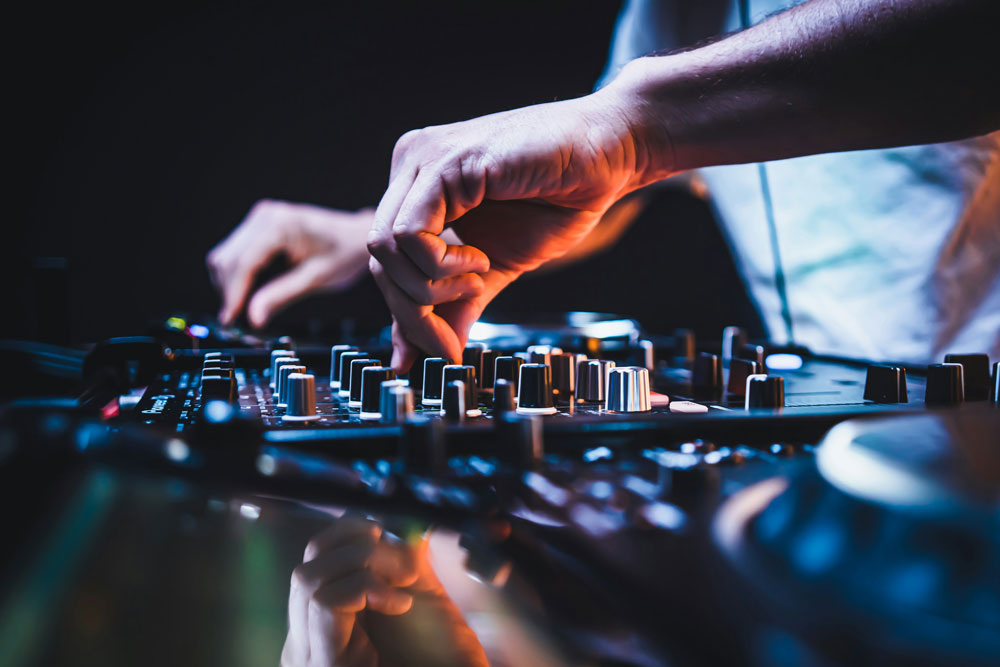10 Must-Have Skills Every Professional DJ Needs to Master
July 12, 2024

In the pulsating world of DJing, it’s more than just pressing play and hoping for the best. The craft requires a unique blend of technical expertise, musical intuition, and showmanship. To truly stand out in this competitive arena, aspiring DJs need to master a variety of skills that go beyond just knowing how to work the decks. Here’s a breakdown of the ten essential skills every professional DJ needs to thrive in the modern music scene.
1. Reading the Crowd: The DJ’s Sixth Sense
The ability to read a crowd is what separates the amateurs from the pros. It’s not enough to have a killer playlist; you need to feel the vibe of the room and adapt accordingly. This skill involves observing the audience’s reactions, gauging their energy levels, and knowing when to drop a banger or slow things down. It’s part psychology, part emotion, and all about creating a shared musical journey that keeps the dance floor alive.
2. Beat-matching: The Heartbeat of DJing
Beat-matching is DJ 101. This is the art of synchronizing the tempos of two tracks to ensure a seamless transition. While software like Serato and Traktor can assist, the true maestros prefer manual beat-matching. It’s not just about keeping the beats in line; it’s about maintaining the soul and flow of the music, ensuring every mix feels natural and engaging. Think of it as the difference between a robot and a seasoned ballroom dancer.
3. Music Curation: The Art of Selection
Curating your music library is a never-ending task. It’s not just about having the latest hits; it’s about finding tracks that resonate with you and your audience. Dig deep into different genres, discover new artists, and constantly update your collection. A well-curated library gives you the tools to craft unique and engaging sets that keep people coming back for more.
4. Mixing Techniques: Beyond the Basics
While beat-matching is essential, advanced mixing techniques like cutting, scratching, and or effects manipulation are what elevate a DJ’s performance. These skills allow you to add your own flair to mixes, creating dynamic and textured soundscapes. Practice these techniques to develop your unique style and keep your sets interesting and innovative.
5. Performance Skills: The Show Must Go On
Finally, a great DJ knows how to put on a show. It’s not entirely about the music alone; it’s about engaging with the crowd, call and response, getting the crowd to sing the best lines of the song. It’s about creating an unforgettable experience that captivates and entertains. Video DJing can add another dimension to your performances, giving a visual impression. Finally, it’s show business & the show never stops. Be prepared so you don’t have glitches or interruptions. But always be ready to improvise in the rare case that there are technical difficulties. A funny remark on the mic or getting the crowd to start a chant, a great DJ can cover up mistakes so well that most believe it was just part of the show. Remember, people come to see a DJ, not just for the music. They come for the entire experience.
6. Technical Proficiency: When Being a Geek Is Cool
Today’s DJs need to be as comfortable with a USB cable as they are with a vinyl record. Mastery of your gear, whether it’s traditional turntables, cutting-edge controllers, or sophisticated software, is crucial. Understanding the technical aspects of your setup allows for smoother performances and on-the-fly problem solving. With modern day DJ equipment, it’s important to have a good level of technical knowledge.
7. Genre Versatility: Jack of All Beats
Some top DJs make a career out of specializing in 1 genre of music. However, most DJs will find that versatility is the key to keeping your calendar of gigs booked up. A good DJ can seamlessly switch between genres, catering to different crowds and events. Whether it’s hip-hop, house, techno or funk, having a broad musical palette ensures you can handle any gig thrown your way. Plus, blending different genres creatively can set you apart and keep your sets fresh and exciting.
8. Branding: Your Unique DJ Identity
In a saturated market, a strong personal brand is vital. This encompasses your style, logo, social media presence, and overall image. Your brand should reflect your musical tastes and personality, making you memorable to promoters and fans alike. A cohesive and professional brand helps you stand out and makes it easier for people to connect with your music and persona. This in turn helps you build a following. A DJ that people come to see is a DJ who will always get booked.
9. Networking: The Social Mixer
Success as a DJ isn’t just about skill; it’s also about who you know. Building a strong network within the music industry can open doors to gigs, collaborations, and opportunities for growth. Attend industry events, engage with other DJs, and maintain a presence on social media. Networking isn’t just about self-promotion; it’s about being part of a community and sharing your passion with like-minded individuals.
10. Music Theory: The DJ’s Secret Weapon
Understanding music theory might sound like a chore, but it’s a game-changer. Knowing your scales, chords, and keys can help you create harmonious mixes that are pleasing to the ear. It’s like having a secret recipe for a perfect auditory cocktail. When you know why certain tracks work well together, you can craft sets that not only make people dance but also evoke deeper emotional responses.
Mastering these ten skills requires dedication, practice, and a passion for music. But for those willing to put in the work, the rewards are immense. So, future DJs, and current DJs who want to further develop their craft, grab your headphones and start mixing. The dance floor awaits!